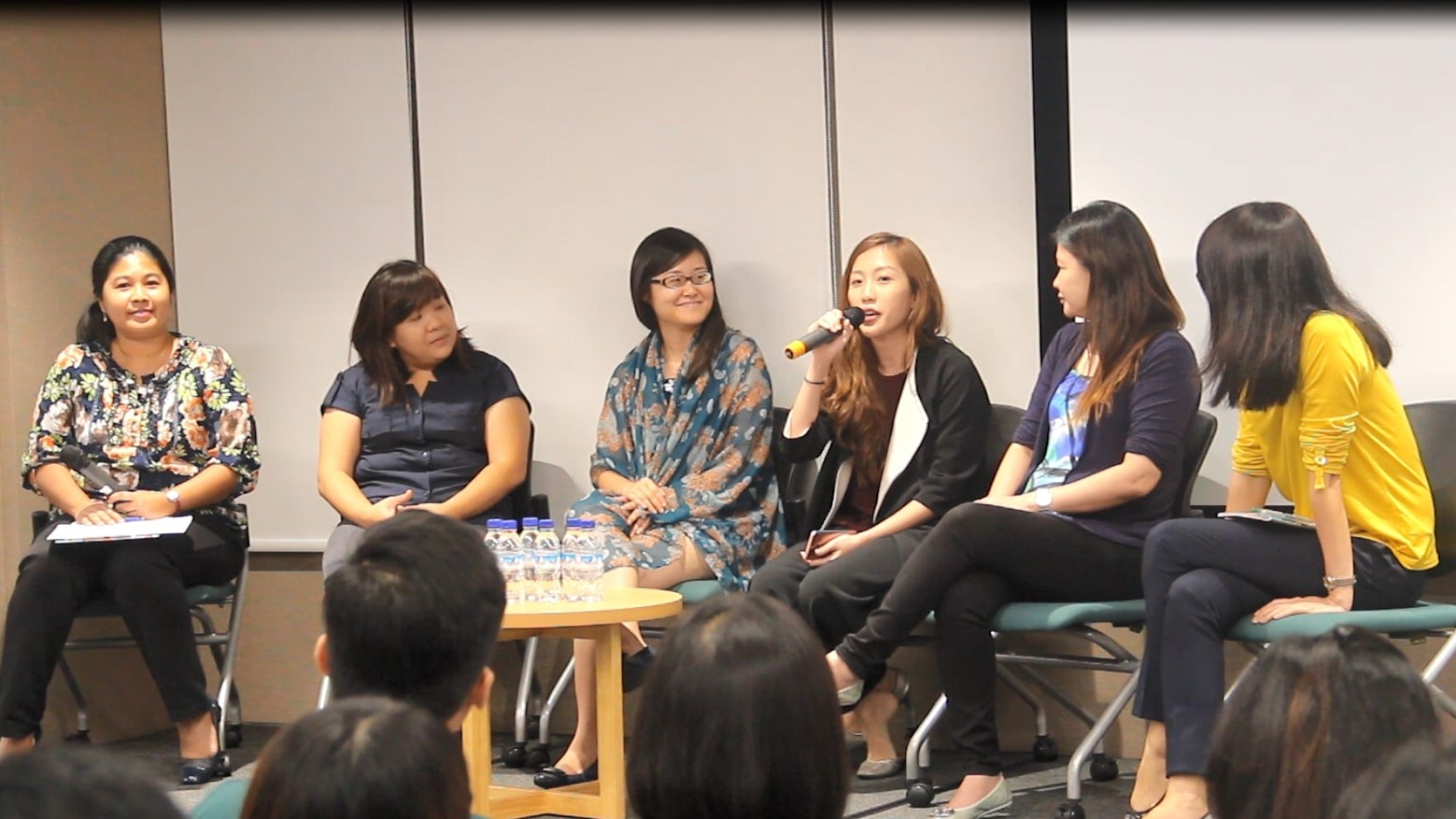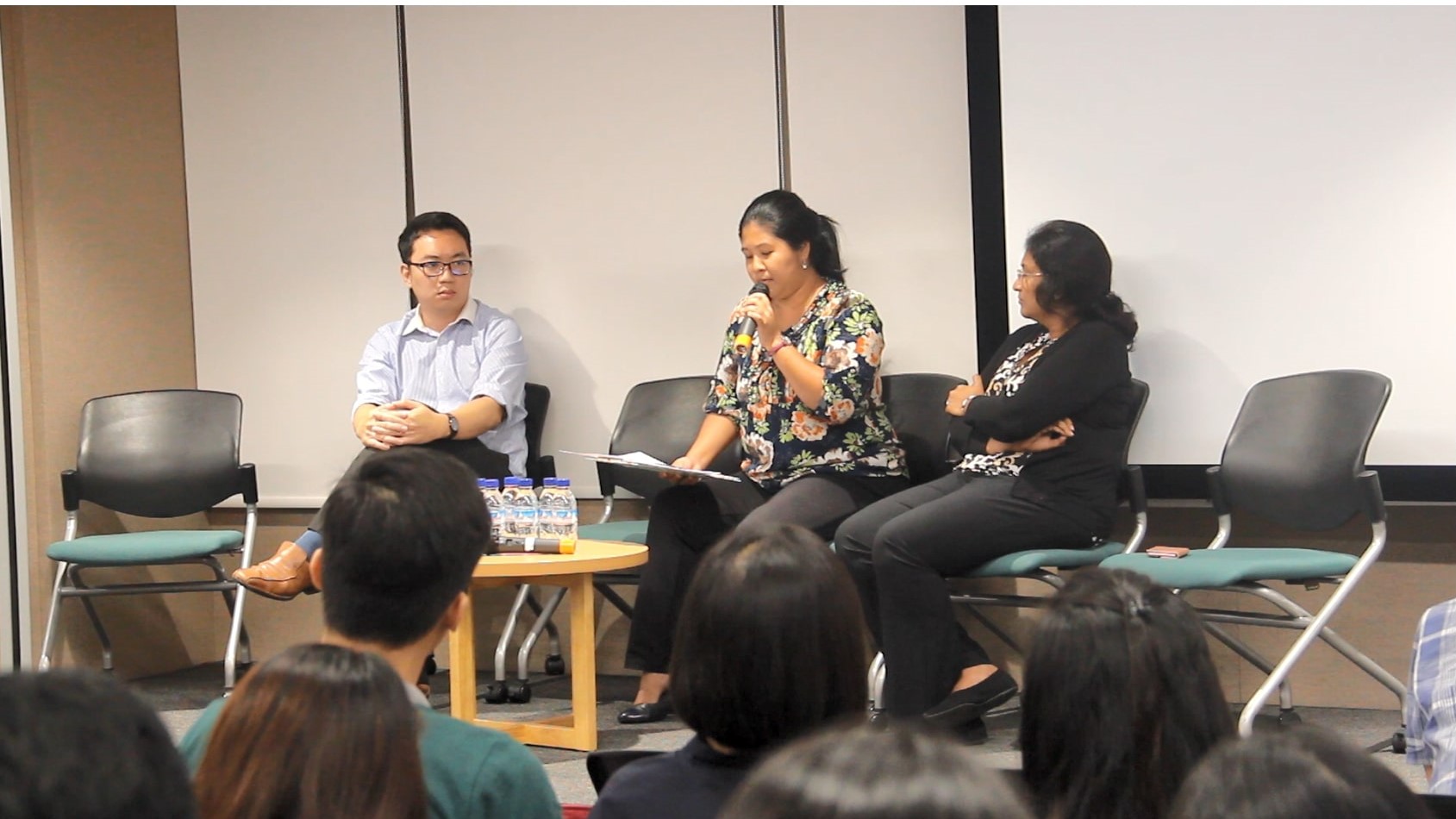Mining Deep, Scaling Heights, Session: Working With Vulnerable Families and Systems: Insights From the Strengthening Families Together Pilot
In this session: “Working With Vulnerable Families and Systems: Insights from the Strengthening Families Together Pilot” held on 28 June 2017, policy makers and practitioners share their experiences in supporting vulnerable families with complex needs, through the Strengthening Families Together Pilot.
Speakers:
1. Ms Olivia Shepherdson – Principal Social Worker, Service Delivery and Development Group, Ministry of Social and Family Development
2. Ms Tan Chui Li – Senior Social Worker, ComCare and Social Support Division, Ministry of Social and Family Development
3. Mr Dexter Gao – Manager, Care Corner Family Service Centre (Queenstown)
4. Ms Wu Bi Qi – Senior Officer (Service Policy and Standards), ComCare and Social Support Division, Ministry of Social and Family Development
Designations as of 28 June 2017.


The Strengthening Families Together (SFT) Pilot
The SFT Pilot is an initiative by the Ministry of Social and Family Development (MSF), in collaboration with various government agencies and community partners. The pilot adopts a whole-of-government approach that aligns assistance based on professional assessments of the circumstances of vulnerable families, and seeks to raise the developmental prospects for their children.
Aims of the SFT Pilot
- Encourage government agencies to exercise greater flexibility in the implementation of policies, based on social workers’ professional assessments and plans.
- Help social workers become more effective in negotiating for vulnerable families’ when accessing help provided by government agencies. This is done via systems training, building collaborations with government agencies and providing standardised assessment tools for them to strengthen their credibility.
Approach of the SFT Pilot
- Family-focused and child-centric social work approach
- Aside from assisting families in obtaining access to help, social workers under the SFT pilot work with families to address long-term issues. This approach involves empowering families by strengthening their parenting skills and including the statements and perspectives of children in social reports.
Results of the SFT Pilot
- Greater collaboration between relevant stakeholders and hence, a stronger relationship between social service agencies and government agencies
- Newly created roles – new points of contact that facilitate communication and follow-up sessions between partners
- More room for discussion of solutions, case conferences, personal interaction with government agencies, and consultations with external agencies when structural barriers were encountered
New Insights from the SFT Pilot – What can help social workers negotiate more effectively with the system and government stakeholders?
The need for a shift in mentality is important – for social service practitioners to see policy makers, and other stakeholders as one collective body working towards the common goal of benefitting clients. This would facilitate the twinning of both social and systems intervention.
For Social Workers
- Comprehensive assessments and intervention by social workers is crucial in helping government agencies understand how help is being rendered to vulnerable families. This would allow government agencies to see why help is required, especially for families that fall beyond the eligibility criteria.
- Social workers should have a good understanding and application of government policies in order to conduct more effective assessments, to better frame their social reports, and to help clients make more informed choices. Having an awareness of the policy rationale also helps social workers to be more strategic during the negotiation and collaboration process.
- Social workers play a crucial role in bridging the communication and knowledge gap between clients and policies. e.g. walking alongside families through appeal processes and assisting them with overcoming language barriers
- Practising systems advocacy – highlighting the importance of family’s needs to the systems and being an advocate
for them. This helps to mediate, bridge and create conversations between families and systems, such that the voices and concerns of vulnerable families can be heard. Advocacy also helps government agencies deepen their understanding of issues and challenges faced by vulnerable families.
For Systems
- A route for regular feedback, so that there is a systematic way for issues to be surfaced to government agencies. This would enable a systematic review of the whole system, which helps policies become more responsive and effective in addressing the emerging needs of vulnerable families.
- A close nexus between the policy rationale and implementation is key. This would allow room for more conversations (joint case discussions and troubleshooting), as well as a close partnership between government agencies and social workers to take place.
How Can Social Workers Become Strategic Advocates?
- Credibility
- Empower yourself with facts and accurate information, so as to represent families well when negotiating with the system
- Curiosity
- Question why applications are not successful
- Ask for alternative solutions, and evaluate what can be done to overcome the barriers
- Creativity
- Explore new methods and solutions to advocate for client’s needs
- Collaboration
- Work with other stakeholders that share a common goal, and help one another recognise the important role that each party plays in helping vulnerable families attain stability
WHAT TO READ NEXT
- MDSH Session: Approaches, Principles and Practice in Working With Persons With Disabilities
- MDSH Session: Partnering Across Disciplines: Educational Psychology and Social Work
- MDSH Session: More Than Just a House: Perspectives of Journeying With Families With Housing Issues
- MDSH Session: When Community Gets Real
- MDSH Session: Innovation for Social Good